Scientific Advisory Board
The Scientific Advisory Board (SAB) for the CRUK Barts Centre consists of an international group of the distinguished scientists and clinician scientists and is designed to provide an independent and expert view on the research, innovation and development of the Centre.
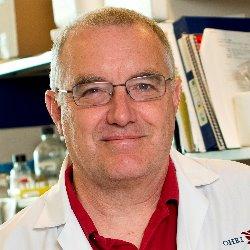
John Bell, PhD
Chair
Professor of Medicine, The University of Ottawa
Dr John Bell is a member of the Center for Cancer Therapeutics at The Ottawa Hospital Cancer Center, a Senior Scientist with the Ottawa Hospital Research Institute and Professor of Medicine at the University of Ottawa. He is Director of the Canadian Oncolytic Virus Consortium, a Terry Fox funded group from across Canada that is developing virus based cancer therapeutics, and Program Co-Director of the Immunotherapeutics Program for the Ontario Institute for Cancer Research. He is the Scientific Director of BioCanRx, a Network of Centres of Excellence for the development of Biotherapeutics for Cancer Therapy and is a fellow of the Royal Society of Canada.
Dr Bell’s research interests include immunotherapy, oncolytic virotherapy and the tumour microenvironment. His laboratory group focuses on the identification and characterisation of novel cancer killing therapeutic viruses that selectively infect and kill cancer cells, while leaving healthy cells and tissues unharmed. As well as discovering and designing new therapeutic viruses, the team also manufacture them for eventual clinical translation and commercialisation.
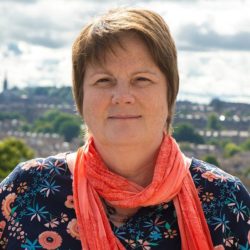
Margaret Frame, OBE, PhD
Director, Cancer Research UK Edinburgh Centre
Director, MRC Institute of Genetics and Molecular Medicine
Margaret Frame is Professor of Cancer Research, Science Director of the Cancer Research UK Edinburgh Cancer Centre and Director of the MRC Institute of Genetics and Molecular Medicine. She recently served as President of the British Association for Cancer Research and Chaired the 2018 National (UK) Cancer Research Institute meeting. Professor Frame is currently co-Chair of the Academy of Medical Sciences Careers Committee and a member of the Lister Institute Scientific Advisory Committee, Wellcome Trust Expert Review Group and ERC Funding Panel. She was awarded an OBE in the Queen’s Honours List in 2018 for services to cancer research.
Professor Frame’s research interests are in novel cancer mechanisms, as evidenced by deep biology, imaging and new approaches to drug discovery and cancer therapeutics. Professor Frame’s laboratory group work on cell adhesion networks in cancer, with specific focus to date on the regulation and role of the adhesion-linked ‘nodal’ tyrosine kinases, and their extensive network of interacting partners.
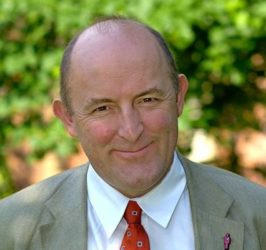
Gareth Evans, MD FCRP
Professor of Medical Genetics and Cancer Epidemiology, The University of Manchester
Professor Gareth Evans has established a national and international reputation in clinical and research aspects of cancer genetics, particularly in neurofibromatosis and breast cancer. He has developed a clinical service for cancer genetics in the North West Region of England, which is nationally regarded. He is an important opinion leader nationally through membership of committees and was chairman of the NICE Familial Breast Cancer Guideline Development Group (2002-2010) and is now clinical lead (2011-).
Professor Evans has developed a national training program for clinicians, nurses and genetic counsellors in breast cancer genetics and established a system for risk assessment and counselling for breast cancer in Calman breast units implemented through a training course (1998-2011). Professor Evans’ research focuses on inherited breast and ovarian cancer and imaging, neurofibromatosis types 1 and 2 and imaging, and other inherited tumour predispositions.
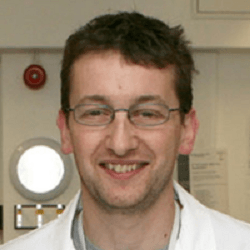
Matt Smalley, PhD
Director, European Cancer Stem Cell Research Institute, Cardiff University
Professor Matt Smalley became Director of the European Cancer Stem Cell Research Institute, Cardiff University, in 2018. He is Associate Theme Lead for the Cardiff University College of Biological and Life Sciences Cancer Theme and Deputy Head of the Division of Biomedicine, School of Biosciences. Professor Smalley’s laboratory group are working to understand how the combination of different tumour-initiating genetic lesions occurring in different normal stem and progenitor cells drive cancer heterogeneity.
Working both in breast and prostate cancer, Professor Smalley's group are interested both in inter-tumour heterogeneity – the clinical differences between tumours – as well as intra-tumour heterogeneity and the formation of cells with 'cancer stem cell' properties within a neoplasia. They are also trying to understand how the biological processes occurring in normal stem cells can be re-activated in tumours and are using this information to identify novel therapeutic targets for blocking tumour growth, therapy resistance and metastasis.
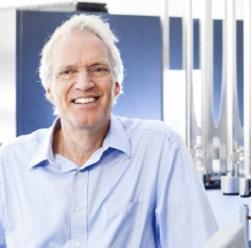
René Bernards, PhD
Division of Molecular Carcinogenesis, Netherlands Cancer Institute
René Bernards is a Group Leader at the Netherlands Cancer Institute and Professor of Molecular Carcinogenesis at Utrecht University, The Netherlands. His scientific accomplishments include the development of MammaPrint, the first clinically-used gene expression profile for breast cancer. To bring this discovery to the clinic he co-founded "Agendia," a genomics-based diagnostic company that started offering the first microarray-based diagnostic test for the clinical management of breast cancer in 2004.
Professor Bernards’ laboratory group employ functional genetic screens to find powerful combinations of cancer drugs by exploiting the concept of "synthetic lethality." Using RNA interference-based genetic screens with collections of shRNAs that target drugable gene families, they search for genes whose inactivation is particularly synergistic with clinically-relevant cancer drugs. Such screens can identify drug combinations that are far more powerful than the sum of the two single agents.
